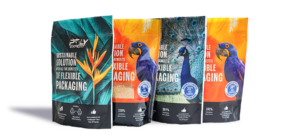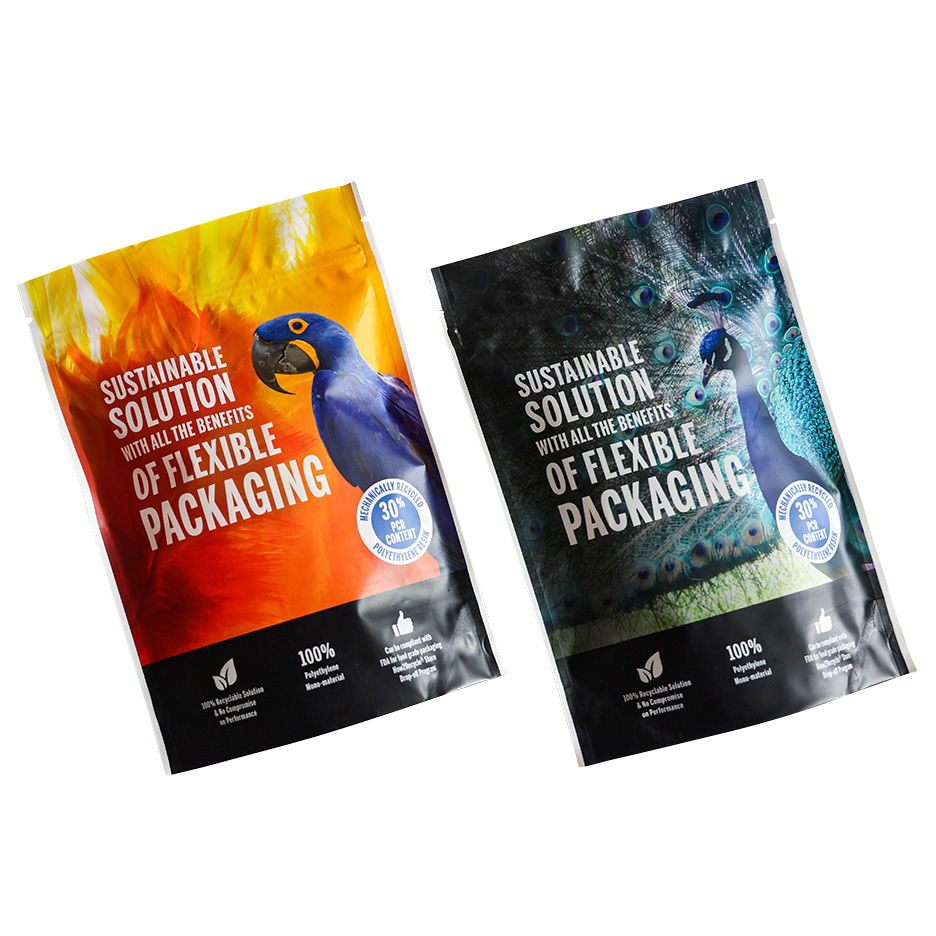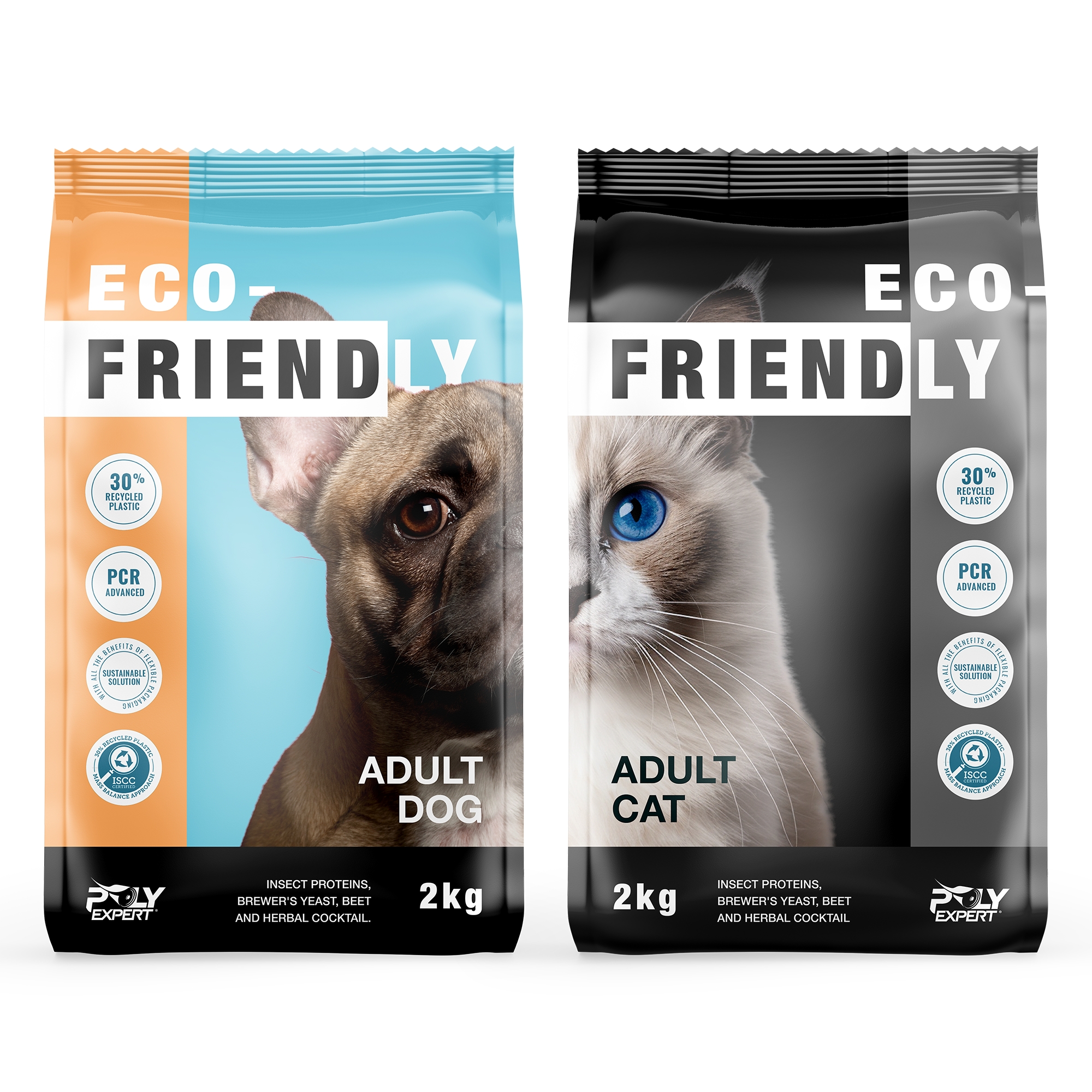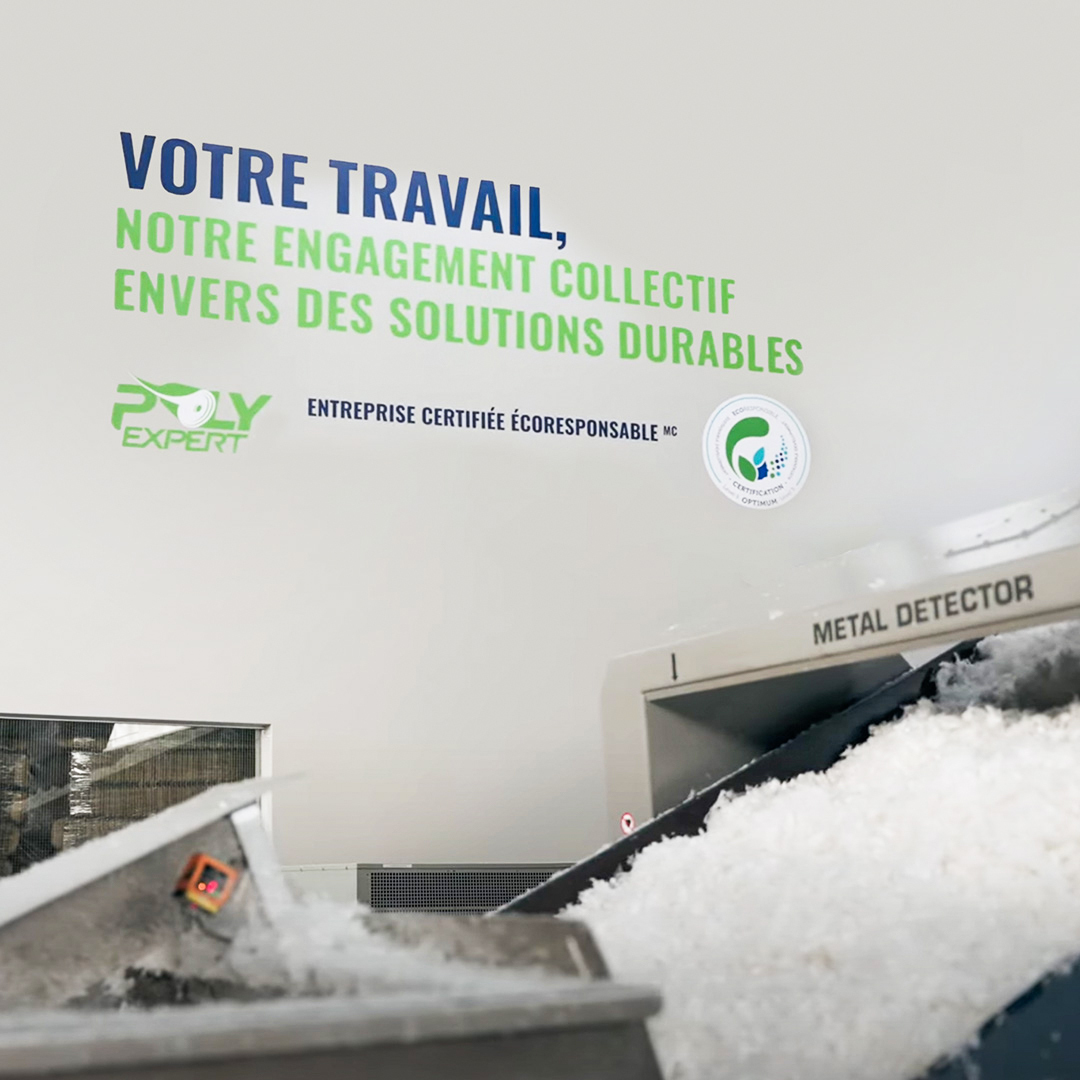By combining product protection requirements with a growing concern for the environment, these films offer an innovative solution that combines performance and ecological responsibility.
Designed to provide an effective barrier against external elements while incorporating recyclable materials, these packaging solutions mark a transition towards a more circular approach to production and waste management.
In this ever-evolving landscape, let’s explore the features and benefits of recyclable barrier films, thereby attesting to their relevance in promoting a more sustainable and planet-friendly economy.
OUR MONO-MATERIAL FILMS
In response to the ambitious market objective of making all packaging recyclable by 2030, PolyExpert has distinguished itself by developing mono-material and fully recyclable packaging.
These packaging solutions are designed to replace currently non-recyclable multi-material packaging, providing a concrete and logical solution to the ever-changing packaging industry.

Versatile, these mono-material packaging solutions find applications in the food sector as well as in agriculture or construction.
By enhancing recyclability, these solutions significantly meet market requirements while representing a major step towards sustainability.
They have been meticulously developed to replace multi-layered packaging while preserving the high standards of safety and quality of the already existing solutions.

MECHANICAL PCR
Mechanically recycled resin, often referred to as mechanical PCR, is the material obtained from products that consumers recycle at home.
These materials are generally collected and delivered to recycling facilities where they are mechanically sorted into bales.
They are subsequently sold, melted, or ground into small pellets to create new films, some of which may even be approved by the FDA (Food and Drug Administration) for food packaging.
This is a relevant solution for two main reasons:
- Achieving sustainability goals: you can work with a high-quality solution that aligns with an eco-friendly approach to meet your overall sustainability goals and the growing environmental expectations of consumers.
- No impact on the benefits or properties of films/packaging: you can benefit from a recycled product while enjoying quality equal to or even superior to non-recyclable solutions.

ADVANCED PCR
Chemically recycled resin, often called Advanced PCR or chemical PCR, is obtained through an innovative recycling process. This process, also known as chemical recycling, refers to various technologies that convert used plastics into virgin resin through an advanced recycling process.
The resin obtained through this process is of very high quality, allowing for easier approval from the FDA (Food and Drug Administration) for use in the food industry. We are able to offer you this solution thanks to our ISCC PLUS certification, which only a few companies can provide after obtaining and undergoing a strict audit, which is our case.
This is a relevant solution for two main reasons:
- It is the highest quality recycled resin available on the market.
- It is an excellent way to send a strong signal by having a certified logo attesting to the recycled nature on the packaging that consumers can see.

PIR
Post-Industrial Recycled resin, often referred to as PIR, is the in-house recycling process.
PolyExpert established its own recycling line in September 2021.
Essentially, the scraps from the cutting process are melted and remolded to create new plastic pellets.
The advantage of this in-house process is that the type of resin is known and controllable.
PIR resin comes from a pre-contamination stage, which facilitates the recycling process into high-quality plastic pellets while allowing us to reduce our production waste to stay aligned with our values of eco-responsibility.
Biodegradable and compostable mulch films
PolyExpert offers a range of eco-responsible mulch films under its BIOGUARD brand to meet the needs of the agricultural industry. Unlike regular films, BIOGUARD mulch films do not need to be removed. Composed of corn starch and vegetable oils, and free from GMOs, they return to the earth without any ecotoxicity once degraded. This is possible because they are biodegradable and made from bio-based materials. After degradation, no residue will be left in your agricultural lands.
NEED MORE INFORMATION ABOUT OUR CERTIFICATIONS AND THEIR PRACTICAL APPLICATIONS IN OUR PRODUCTS?
Write to us via the following form to speak with one of our experts who will answer all your questions!


